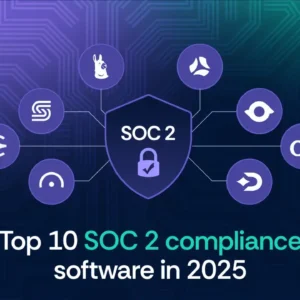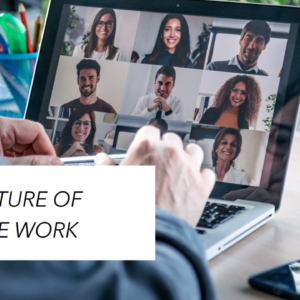The use of AI in diversity hiring is becoming increasingly popular, and for good reason. AI in Diversity Hiring has the potential to revolutionize the recruitment process by minimizing unconscious bias and ensuring that all candidates are given a fair chance. With diversity recruitment AI, companies can build a more equitable workplace by analyzing candidate profiles and identifying top talent.
By leveraging AI in Diversity Hiring, companies can make informed decisions and create a more diverse and inclusive workforce. AI in diversity recruitment can help identify and mitigate bias, providing a more level playing field for all candidates. This is especially important in the United States, where diversity and inclusion are highly valued.
Introduction to AI in Diversity Hiring
As companies continue to strive for greater diversity and inclusion, AI in Diversity Hiring is becoming an essential tool. With its ability to analyze large amounts of data and provide data-driven insights, diversity recruitment AI can help companies make more informed hiring decisions. By reducing bias and increasing diversity, companies can create a more positive and productive work environment.
Key Takeaways
- AI in Diversity Hiring can help reduce bias in the recruitment process
- Diversity recruitment AI can analyze candidate profiles and identify top talent
- AI in diversity hiring can help companies create a more diverse and inclusive workforce
- AI can provide data-driven insights to inform hiring decisions
- Diversity recruitment AI can help companies mitigate bias and create a more level playing field for all candidates
- AI in Diversity Hiring is becoming an essential tool for companies in the United States
Understanding the Role of AI in Diversity Hiring
Artificial intelligence for inclusive hiring is becoming increasingly important in today’s workplace. As companies strive to create a more diverse and inclusive environment, they are turning to innovative solutions like inclusive hiring technology to help them achieve their goals. Research suggests that diversity hiring is crucial for building a strong and inclusive workplace culture, and AI can play a significant role in this process.
By leveraging artificial intelligence for inclusive hiring, companies can create a more level playing field for all candidates. Inclusive hiring technology can help identify and eliminate biases in the recruitment process, ensuring that the most qualified candidates are selected for the job. This not only benefits the company but also contributes to a more diverse and inclusive workplace culture.
Some of the ways AI can contribute to diversity hiring include:
- Analyzing candidate data to identify patterns and biases
- Providing insights to help hiring managers make more informed decisions
- Automating routine tasks to reduce the risk of human bias
Overall, the use of artificial intelligence for inclusive hiring and inclusive hiring technology can have a significant impact on creating a more diverse and inclusive workplace culture. By embracing these innovative solutions, companies can take a major step forward in building a more equitable and inclusive work environment.
The Challenge of Bias in Traditional Hiring
Traditional hiring practices often rely on human judgment, which can be prone to biases and prejudices. This can lead to a lack of diversity in the workplace, which can have negative consequences for the organization. To address this issue, many companies are turning to diverse talent acquisition software and AI diversity and inclusion tools to help identify and eliminate biases.
Studies have shown that bias in hiring can lead to a lack of diversity in the workplace. This can result in a range of negative consequences, including decreased innovation, lower employee morale, and reduced competitiveness. By using AI-powered diversity and inclusion tools, companies can help ensure that all candidates are given a fair chance, regardless of their background or demographics.
Common Types of Bias
- Confirmation bias: the tendency to favor candidates who confirm our existing biases or stereotypes
- Affinity bias: the tendency to favor candidates who are similar to us in terms of background, interests, or experiences
- Anchoring bias: the tendency to rely too heavily on the first piece of information we receive about a candidate
By understanding these common types of bias, companies can take steps to mitigate their impact and create a more inclusive hiring process. This can include using blind hiring practices, such as removing names and photos from resumes, and implementing AI-powered screening tools to help identify top candidates.
The Impact of Bias on Workforce Diversity
The impact of bias on workforce diversity can be significant. When biases are allowed to influence hiring decisions, it can result in a lack of diversity in the workplace. This can lead to a range of negative consequences, including decreased innovation, lower employee morale, and reduced competitiveness. By using diverse talent acquisition software and AI diversity and inclusion tools, companies can help ensure that all candidates are given a fair chance, regardless of their background or demographics.
How AI Can Identify Unconscious Bias
Artificial intelligence has the potential to revolutionize the hiring process by identifying and eliminating unconscious bias. With the help of machine learning for diverse recruitment, companies can make more informed decisions when it comes to hiring. Automated diversity hiring solutions can analyze large amounts of data, including candidate profiles, resumes, and cover letters, to identify patterns and biases.
Research has shown that AI can be effective in identifying and eliminating biases in hiring. By using data-driven insights, hiring managers can make more objective decisions, rather than relying on personal opinions or biases. This can lead to a more diverse and inclusive workforce, which can have numerous benefits for companies, including increased innovation and better decision-making.
Data-Driven Insights
- Analysis of candidate profiles to identify top talent
- Identification of patterns and biases in hiring decisions
- Providing recommendations for hiring managers to make more informed decisions
Analyzing Candidate Profiles
AI can analyze candidate profiles to identify the most qualified candidates, regardless of their background or demographics. This can help companies to create a more diverse and inclusive workforce, which can lead to increased innovation and better decision-making. By using automated diversity hiring solutions and machine learning for diverse recruitment, companies can ensure that they are making the most objective and informed hiring decisions possible.
| Benefits of AI in Hiring | Description |
|---|---|
| Increased Objectivity | AI can analyze large amounts of data to identify patterns and biases, leading to more objective hiring decisions. |
| Improved Diversity | AI can help companies to create a more diverse and inclusive workforce, leading to increased innovation and better decision-making. |
AI Tools for Enhancing Diversity During Recruitment
As companies strive to create a more inclusive workplace culture, they are turning to AI-powered tools to enhance diversity during recruitment. A diversity analytics platform can help identify biases in the hiring process, providing valuable insights to inform decision-making. By leveraging AI in diversity hiring, companies can reduce unconscious bias and create a more level playing field for all candidates.
There are several AI-powered tools available to support diversity hiring, including:
- Resume screening software that can analyze candidate data and identify top talent
- Candidate assessment platforms that use AI to evaluate candidate skills and fit
- Interview AI solutions that can help assess candidate responses and provide feedback to hiring managers
By utilizing these tools, companies can create a more diverse and inclusive workplace culture, which can lead to improved business outcomes and a competitive edge in the market. As the use of AI in diversity hiring continues to evolve, it’s essential for companies to stay up-to-date on the latest trends and best practices to ensure they are getting the most out of these tools.
Benefits of AI in Diversity Hiring
The integration of artificial intelligence for inclusive hiring has numerous benefits, including a more diverse candidate pool and improved hiring outcomes. By leveraging diversity recruitment AI, companies can create a more inclusive workplace, which is essential for attracting and retaining top talent. This approach enables businesses to make more informed hiring decisions, reducing the risk of unconscious bias and promoting a culture of diversity and inclusion.
Some of the key advantages of using AI in diversity hiring include:
- Increased efficiency in the hiring process, allowing for a faster time-to-hire and reduced recruitment costs
- Improved candidate experience, with personalized interactions and feedback
- Enhanced company reputation, as a result of being perceived as an inclusive and diverse workplace
According to research, the use of AI in diversity hiring can lead to improved hiring outcomes, with more diverse teams and better job fits. This, in turn, can result in increased employee satisfaction, reduced turnover rates, and improved overall business performance. By embracing diversity recruitment AI and artificial intelligence for inclusive hiring, companies can gain a competitive edge in the market and achieve long-term success.
| Benefits of AI in Diversity Hiring | Description |
|---|---|
| Increased Efficiency | Faster time-to-hire and reduced recruitment costs |
| Improved Candidate Experience | Personalized interactions and feedback |
| Enhanced Company Reputation | Perceived as an inclusive and diverse workplace |
Addressing Concerns about AI in Hiring
As companies increasingly turn to inclusive hiring technology to streamline their recruitment processes, concerns about transparency and over-reliance on technology have grown. To address these concerns, it’s essential to understand the role of diverse talent acquisition software in hiring and how it can be used to support human decision-making.
One of the primary concerns is the lack of transparency in AI algorithms used in hiring. Ensuring that these algorithms are explainable and unbiased is crucial to building trust in the recruitment process. Companies can achieve this by implementing regular audits and testing to identify and mitigate any biases in their AI systems.
To mitigate over-reliance on technology, companies can use AI as a tool to support human decision-making, rather than replacing it. This approach enables hiring managers to focus on the human aspects of recruitment, such as candidate fit and company culture, while leveraging AI to streamline tasks like resume screening and candidate assessment. Some key strategies for achieving this balance include:
- Implementing AI-powered tools to enhance the recruitment process, such as chatbots and virtual assistants
- Using data analytics to inform hiring decisions and identify top candidates
- Providing training and support for hiring managers to effectively use AI-powered tools and make informed decisions
By addressing concerns about AI in hiring and implementing strategies to support human decision-making, companies can harness the power of inclusive hiring technology and diverse talent acquisition software to build a more diverse and inclusive workforce.
Real-World Success Stories
Several companies have successfully implemented AI in diversity hiring, with measurable outcomes. By leveraging AI diversity and inclusion tools, these companies have created a more diverse and inclusive workplace culture. For instance, companies like IBM and Accenture have used automated diversity hiring solutions to reduce bias in their hiring processes.
These companies have seen an increase in diversity hiring, improved hiring outcomes, and enhanced company reputation. The use of AI diversity and inclusion tools has also helped them to identify and mitigate unconscious bias in the hiring process. As a result, they have been able to attract and retain top talent from diverse backgrounds.
Some notable examples of companies that have successfully implemented AI in diversity hiring include:
- Microsoft, which has used AI-powered tools to analyze candidate resumes and identify top talent
- Google, which has implemented AI-driven interview platforms to reduce bias in the hiring process
- Cisco, which has used AI-powered chatbots to improve candidate engagement and experience
These companies are leading the charge in using AI diversity and inclusion tools to create a more diverse and inclusive workplace culture. By embracing automated diversity hiring solutions, they have been able to improve their hiring outcomes and enhance their company reputation. As the use of AI in diversity hiring continues to grow, we can expect to see more companies following suit and leveraging these tools to create a more inclusive and diverse workplace.
Guidelines for Implementing AI in Hiring
To ensure the effective use of AI in hiring, it’s essential to follow best practices that promote fairness, transparency, and accountability. This includes leveraging machine learning for diverse recruitment to minimize bias and maximize the potential of a diverse workforce. By utilizing a diversity analytics platform, companies can gain valuable insights into their hiring processes and make data-driven decisions.
When implementing AI in hiring, HR teams should consider the following key strategies:
- Develop a comprehensive understanding of AI algorithms and their potential biases
- Establish clear guidelines for the use of AI-powered tools in the hiring process
- Provide training for hiring managers to ensure they can effectively use AI-driven platforms
- Regularly monitor and evaluate the performance of AI systems to identify areas for improvement
By adopting these guidelines and leveraging the power of machine learning for diverse recruitment and diversity analytics platform, companies can create a more inclusive and equitable hiring process that attracts top talent from diverse backgrounds.
The Future of AI in Diversity Hiring
As we look to the future, it’s clear that AI in diversity hiring will play an increasingly important role in shaping the workforce. With emerging trends and predictions for the future of AI in diversity hiring, companies can expect to see more advanced AI-powered tools for diversity recruitment AI. These tools will enable companies to create a more diverse and inclusive workplace culture, and to attract and retain top talent from diverse backgrounds.
The use of AI in diversity hiring is expected to increase, with more companies adopting AI-powered tools to enhance their diversity recruitment AI efforts. Some of the key trends to watch include:
- Increased use of machine learning algorithms to identify and mitigate bias in hiring decisions
- Greater emphasis on diversity and inclusion training for AI systems
- More widespread adoption of blind hiring practices, where AI-powered tools remove identifiable information from resumes and applications
According to experts, the future of AI in diversity hiring holds much promise, with the potential to revolutionize the way companies approach diversity and inclusion. By leveraging AI-powered tools, companies can create a more level playing field for all candidates, regardless of their background or demographics. As AI technology continues to evolve, we can expect to see even more innovative solutions for diversity recruitment AI, leading to a more diverse and inclusive workforce.
| Trend | Description |
|---|---|
| AI-powered bias detection | Using machine learning algorithms to identify and mitigate bias in hiring decisions |
| Diversity and inclusion training | Providing training for AI systems to recognize and promote diversity and inclusion |
| Blind hiring practices | Using AI-powered tools to remove identifiable information from resumes and applications |
Legal and Ethical Considerations
As companies increasingly adopt artificial intelligence for inclusive hiring, it’s essential to consider the legal and ethical implications of this technology. Inclusive hiring technology has the potential to reduce bias and increase diversity, but it also raises concerns about compliance and fairness. Companies must ensure that their use of AI-powered hiring tools is transparent, explainable, and free from bias.
The use of artificial intelligence for inclusive hiring requires a deep understanding of the legal and ethical considerations involved. This includes ensuring that AI algorithms are designed and trained to avoid discrimination and that hiring managers are trained to use these tools effectively. By prioritizing transparency and fairness, companies can harness the power of inclusive hiring technology to build a more diverse and inclusive workforce.
Some key considerations for companies using artificial intelligence for inclusive hiring include:
- Ensuring compliance with relevant laws and regulations, such as the Equal Employment Opportunity Commission (EEOC) guidelines
- Implementing robust testing and validation procedures to ensure that AI algorithms are free from bias
- Providing transparency into the decision-making process and ensuring that hiring managers understand how AI-powered tools work
By addressing these legal and ethical considerations, companies can ensure that their use of artificial intelligence for inclusive hiring is both effective and responsible. This will not only help to reduce bias and increase diversity but also promote a fair and inclusive hiring process for all candidates.
Conclusion: Embracing AI for Inclusive Talent Acquisition
In conclusion, the integration of diverse talent acquisition software and AI diversity and inclusion tools has the potential to revolutionize the recruitment process. By leveraging advanced AI technologies, companies can minimize unconscious bias and create a more diverse and inclusive workforce. This not only benefits the organization by attracting top talent from various backgrounds but also enhances its reputation as an employer committed to diversity and inclusion.
As AI technology continues to evolve, we can expect to see even more sophisticated tools for diversity hiring. From automated resume screening to AI-powered candidate assessment platforms, the future of talent acquisition is poised to become more equitable and inclusive. By embracing these innovative solutions, companies can take proactive steps towards building a workforce that truly reflects the diversity of their communities and customers.
Key Takeaways
The use of AI in diversity hiring can:
- Reduce unconscious bias in the recruitment process
- Expand the pool of qualified and diverse candidates
- Improve hiring outcomes and workforce diversity
- Enhance a company’s reputation as an inclusive employer
Future Directions
As AI technology continues to evolve, we can expect to see more advanced AI diversity and inclusion tools that can further enhance the fairness and effectiveness of the hiring process. By staying at the forefront of these advancements, companies can position themselves as leaders in diversity and inclusion, ultimately creating a more diverse, innovative, and successful workforce.














